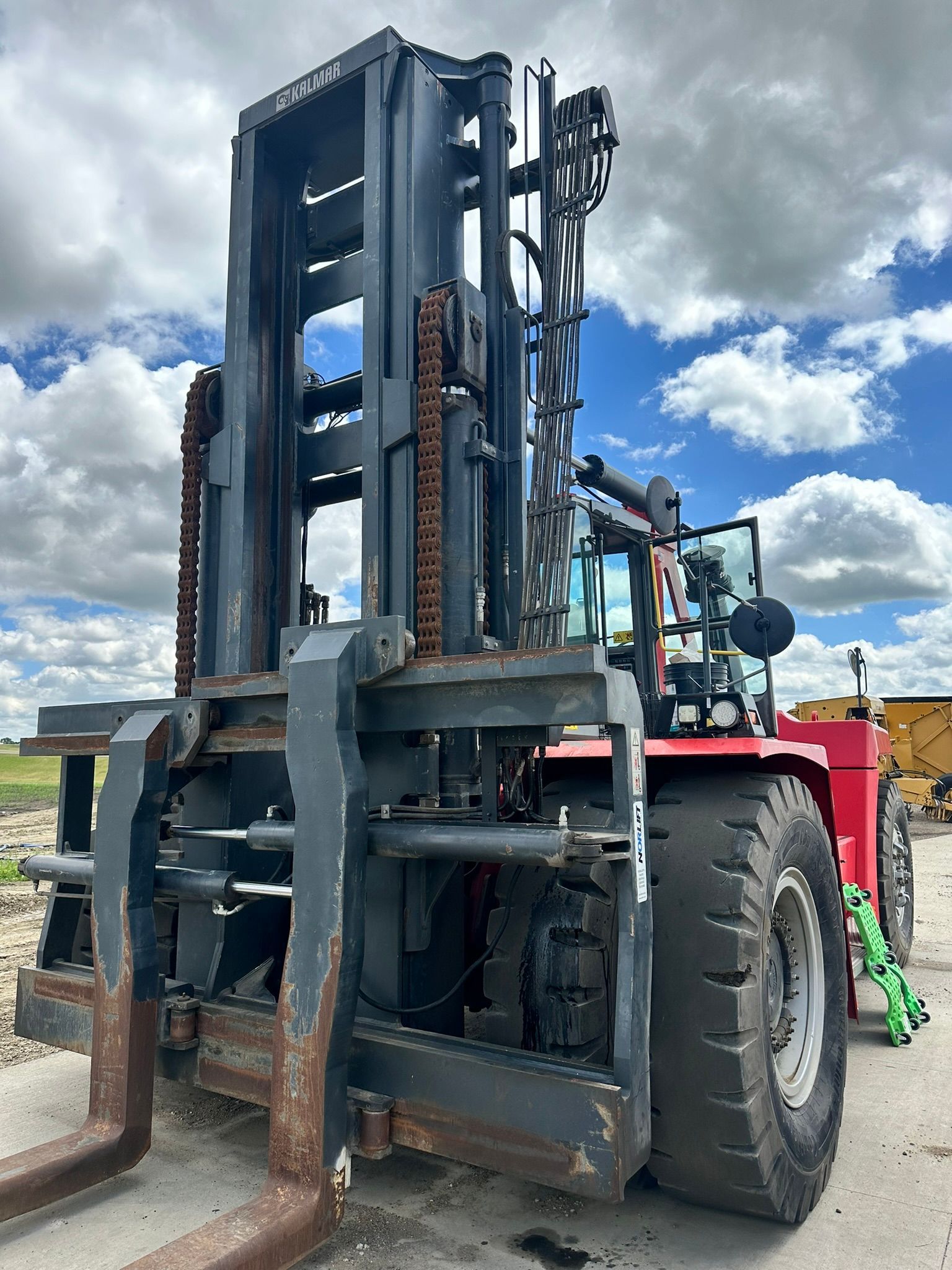Grey Market Forklifts — What They Are, Why They Sell Cheap, and Why We Don’t Work on Them

If the deal looks too good to be true — it probably is.
Every year, used forklifts and lift trucks show up at auctions across the U.S. and Canada with shiny paint, low hours, and bargain prices.
But there’s a catch: many of these are grey market machines — imported from overseas and never meant for use in North America.
At Xtreme Pro Services, we don’t service or support grey market forklifts — and for good reason.
They may look identical to U.S. or Canadian models, but they were built to lower, more lenient standards that don’t meet ANSI, CSA, or EPA requirements.
That means less protection for operators, no manufacturer support, and serious legal and safety risks for owners.
1. What Is a Grey Market Forklift?
A grey market forklift is a lift truck that was built for a foreign market, then later imported into the U.S. or Canada without manufacturer authorization.
These are real branded machines — Toyota, Komatsu, Mitsubishi, Nissan, and others — but they were designed to meet foreign regulations, not North American safety and emissions laws.
From the outside, they may look identical to U.S. or Canadian versions.
But beneath the paint and decals, they’re built to different engineering standards — often with lower safety requirements, less stringent emissions limits, and different electrical or hydraulic configurations.
That’s why they’re cheaper to produce overseas, but not certified for use here.
Because they bypass official distribution channels,
manufacturers won’t honor warranties, provide parts support, or issue technical data for them.
2. Why They Sell for Cheap at Auctions
It’s simple: they’re not supposed to be here.
Grey market forklifts sell at deep discounts because:
- They were purchased cheaply overseas, often near end-of-life, and shipped in bulk.
- No compliance modifications were made to meet U.S./Canadian standards.
- No warranty or manufacturer support applies — the OEM won’t back them.
- Dealers and insurers avoid them, leaving auctions as the only outlet.
They look like a great deal — until you find out you can’t get parts, can’t get insurance coverage, and can’t legally use them in many workplaces.
3. How to Tell if You Have a Grey Market Forklift
Many owners don’t realize they have one until something goes wrong — usually when calling for service and hearing, “That serial number doesn’t exist in our system.”
Here’s what to look for:
- Foreign-language data plates or decals (often Japanese or European).
- Missing ANSI B56 or CSA B335 markings — these must appear on the nameplate.
- No EPA or UL stickers on the engine or chassis.
- Odd model or serial numbers that don’t match North American listings.
- No English operator manual or documentation.
If you bought a used forklift that seems “different,” run the serial number with an authorized dealer.
They can confirm whether it was built for the U.S. or Canadian market.
4. Legal and Liability Issues
Owning or operating a grey market forklift can expose you to major legal and insurance risks:
- ANSI/CSA Non-Compliance:
Forklifts used in the U.S. must meet ANSI/ITSDF B56 standards; in Canada, CSA B335.
Grey market units were built under different or weaker standards, so they may lack seat switches, proper overhead guard strength, or load stability features required here.
In most regulated environments, that makes them illegal to operate.
- EPA Violations:
Imported engines may not meet EPA Tier emission levels or have the required EPA label.
Running non-certified equipment can lead to fines or penalties in certain jurisdictions.
- Insurance Denial:
If a grey market forklift is involved in an accident, insurers can deny coverage because the machine wasn’t certified for this market.
That leaves the owner personally liable for damages or injuries.
- Resale Restrictions:
Most reputable dealers won’t accept or resell grey market units.
They typically end up back at auction — or headed for scrap.
5. Safety Concerns Beyond Compliance
Grey market forklifts aren’t just a legal issue — they’re often physically unsafe for North American worksites.
Common problems include:
- Missing operator presence systems (OPS): The lift can still move even if the operator isn’t seated.
- Non-compliant seat belts or overhead guards: Built to weaker standards, offering less protection.
- Labels and warnings in foreign languages.
- Incorrect or missing capacity plates — often not updated for attachments or load ratings.
Even skilled operators can get hurt when a machine behaves differently than expected.
Safety standards exist for a reason — and grey market lifts don’t meet them.
6. Why Xtreme Pro Services Does Not Work on Grey Market Forklifts
We take safety, quality, and integrity seriously.
That’s why Xtreme Pro Services does not service, diagnose, or calibrate any grey market forklifts.
Here’s why:
- No OEM support or warranty — the manufacturer won’t back any work performed.
- Unknown parts compatibility — components may differ even if they look identical.
- No wiring diagrams, software access, or technical data for non-domestic units.
- Legal and liability risk — servicing a non-compliant forklift could imply it’s safe to operate when it’s not.
We don’t gamble with customer safety or our reputation.
If it doesn’t meet North American safety and emissions standards — we don’t touch it.
7. How to Protect Yourself Before You Buy
Before bidding or buying used equipment:
1. Run the serial number through an authorized dealer or OEM.
2. Inspect the capacity plate — look for ANSI B56 or CSA B335 compliance.
3. Confirm the EPA emissions label on the engine (diesel or LPG).
4. Ask for documentation — manuals and service records should be in English.
5. Be cautious of “too good to be true” deals.
If you’re unsure, call Xtreme Pro Services before you buy.
We can help verify if a machine is legitimate or a grey market risk.
8. The Bottom Line
Grey market forklifts look like the real thing, but they aren’t built for the same market, regulations, or safety expectations.
They’re non-compliant, unsafe, and unsupported — sold cheap because they were built to lower standards overseas.
Authorized dealers won’t service them.
We won’t either — because safety isn’t optional.
Before you buy, verify your serial number and check compliance.
It might save you thousands — and keep your team safe.
Need Help Verifying a Forklift?
We can help you confirm whether a used forklift meets ANSI/CSA and EPA compliance before you commit.
Stay safe, legal, and productive — with equipment you can rely on.
701-987-9877
xtremepro.services
Serving Williston • Tioga • Watford City • Sidney • Minot
Xtreme Pro Services — Safety, Integrity, and Expert Diagnostics.


